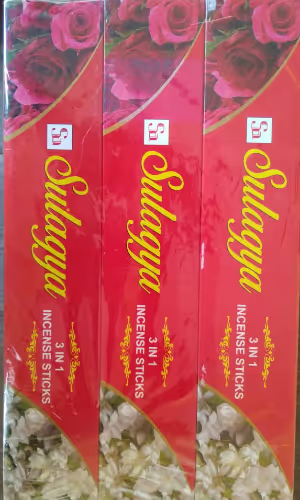UP-based agarbatti maker Maa Vaishnavi aims to light up lives of rural women
While the challenges are many for the company, it has managed to provide full-time employment to around eight women to make them self-dependent
India is the world’s main incense producing country and is a healthy exporter to other countries. Incense burning has taken place in India for thousands of years now, and there are plenty of manufacturers in this sector all over India due to the demand for incense sticks for various activities.
In order to provide employment opportunity to women in rural areas and to make them self-dependent, Lal Singh established Maa Vaishnavi Fragrances in Farrukhabad, Uttar Pradesh in 2007. The company manufactures incense sticks (agarbatti) and dhoop batti and sells it under the brand Sulagya.
Lal Singh (36) worked with different companies in the chemical industry after completing his BSc. He also took the comprehensive training programme from Fragrance and Flavour Development Centre (FFDC) in Kannauj, Uttar Pradesh, where he got interested in the art of fragrance making and making incense sticks. With an initial investment of Rs 15 lakh, he put up his own small factory in his village.

Maa Vaishnavi's Agarbattis
Today, Singh provides full-time employment to around eight women in his village. He says, “Most of the women working with us are not financially independent and depend on their husband or other male members of the family. They are not well-educated and hence finding a proper job is difficult for them.”
He says, among the women he has employed, there are two widows and they don’t have any other means of income. He is trying to help them out by providing employment.
Singh says, “We source raw materials from nearby districts like Kanpur and Kannauj, and our products are sold in more than three to four districts in the state.”
“We are now supplying premium incense sticks and incense cones. The most important thing for incense sticks is it should burn for a longer period of time and not get exhausted easily. Customers also demand for aromatic fragrance, especially in the dhoop batti, and we have launched different varieties of them with different fragrances,” he says.
Singh adds, “Our incense sticks emit a limited amount of smoke in order to reduce pollution. Therefore, our products are getting a good response from customers and also good publicity. I hope this business will cater to more and more people.”
Singh believes in managing all the critical areas by himself and says he keeps taking feedback from customers from time to time and works for around 14-15 hours every day. He says, “As the owner, one needs to be aware of all the business activities. In the beginning, the availability and production of good quality fragrances looked difficult. But after getting the training from FFDC, I found the solution for quality-related problems.”
Singh explains, “The business is in its initial stage, and it hasn’t reached its break-even point.” But his main target is to start manufacturing eco-friendly havan samagri (a mix of herbal roots and leaves). He proudly says, “The key milestone in our business journey has been the constant involvement of people from the rural areas of Farrukhabad and they keep on adding with time.”
However, not everything has been easy for him. He says, “I have a very limited amount of working capital and sustaining the business is difficult as the raw materials that I procure from other districts become expensive due to the high transportation cost. Having a good funding is very important as many times, a huge amount gets stuck in the market and one needs to take a small amount of loan and on top of it, debtors make the cash flow even more difficult.”
In the absence of availability of funds, Singh says, “My expectation from the government is it should provide small entrepreneurs low interest rate loans, so that running the business is not affected. The government should also organise awareness programmes in order to promote this industry.”
Singh has big plans for the future and he wants to provide a wide range of incense products and also plans to start a one-on-one shop-to-shop supply channel in order to reach out to more customers. He is also looking for new techniques to produce different fragrances by himself.
“There is no substitute for hard work in this business, and everything should be executed with proper planning and there should be no compromise on the quality of the product,” he says, advising the people who want to enter the industry.







